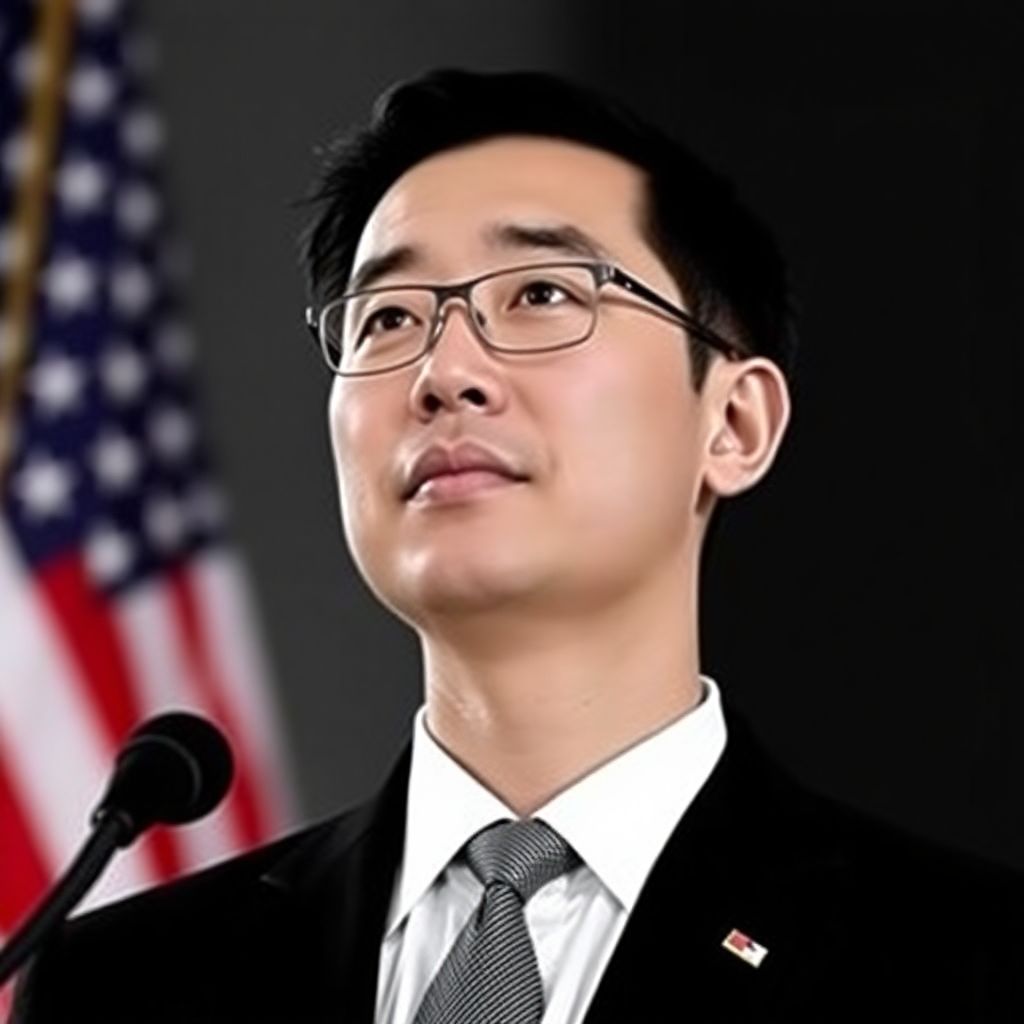Binance has firmly rejected allegations that its recent business decisions were influenced by political motives following the presidential pardon of its co-founder and former CEO, Changpeng Zhao (CZ), by Donald Trump. The move has sparked controversy in Washington, with Democratic lawmakers suggesting that the pardon may have been part of a broader political arrangement involving the Trump family’s cryptocurrency interests.
One of the major points of contention is the timing of Binance.US’s listing of USD1, a stablecoin associated with World Liberty Financial (WLFI), a decentralized finance (DeFi) platform with alleged links to the Trump family. Critics argue that the listing occurred just days after Trump’s pardon of Zhao, raising suspicions of a quid pro quo.
Senator Chris Murphy publicly criticized the sequence of events, stating that “only a week after Trump pardoned Binance’s founder for an alarming list of offenses—including those tied to terrorist and sex offender financing—Binance began promoting crypto assets connected to Trump.” He further accused the White House of operating as a “round-the-clock corruption machine.”
In response, Binance.US issued a detailed statement denying any political motivations behind its listings. The exchange emphasized that all assets, including USD1 and WLFI, undergo rigorous legal and compliance reviews prior to listing. It also pointed out that these tokens are already available on more than 20 reputable exchanges, including U.S.-based platforms like Coinbase, Robinhood, and Kraken.
“Business decisions like listings are made independently and based solely on market demand, technology, and compliance—not politics,” Binance.US stated. The company expressed concern that routine corporate choices are being unfairly politicized in today’s highly polarized environment.
Amid the swirling controversy, some reports suggest Binance may have played a role in facilitating the Trump family’s crypto endeavors. According to unnamed sources cited by independent media, Binance allegedly helped World Liberty Financial rake in billions through its digital asset strategies and even established a high-level internal task force to explore a partnership with the Trump-affiliated crypto venture.
However, representatives from World Liberty Financial have categorically denied any involvement in the pardon process. Attorney Tom Clare stated unequivocally that the firm “has never participated in, influenced, or advocated for Mr. Zhao’s presidential pardon.” While the company voiced its support for the pardon on ideological grounds—citing opposition to what it described as politically motivated prosecutions—it denied any backroom dealings.
“Everyone targeted by Joe Biden’s weaponized legal system deserves to be pardoned,” said World Liberty spokeswoman Gail Gitcho, aligning the company’s stance with broader conservative narratives.
Wayne F. Dennison, legal counsel for Binance, also defended the company’s actions, noting that Binance had no control over the stablecoin selected by MGX, the platform through which USD1 was launched. He reiterated that there was “no wrongdoing” involved in any of the recent developments.
Former President Trump, when questioned about the pardon, claimed it was granted “at the request of many respected individuals.” Yet, the timing and context of the decision continue to raise red flags among critics, fueling speculation about deeper political entanglements between cryptocurrency firms and influential political families.
White House press secretary Karoline Leavitt addressed the issue, asserting that neither Trump nor his relatives have ever participated in, nor will they participate in, any activities that may pose a conflict of interest. She insisted that the pardon was a standalone executive decision, not influenced by financial or political favors.
The controversy comes at a time when Binance is aggressively expanding its global footprint, particularly in Asia and South Korea, even as Western regulators—especially in France and the United States—continue to intensify scrutiny of the global crypto exchange. The company is also investing heavily in stablecoin development, further raising its profile in the DeFi ecosystem.
The case has sparked wider discussions about the intersection of politics and cryptocurrency. As digital assets become increasingly embedded in global financial systems, questions about governance, accountability, and political influence are taking center stage. Critics argue that the lack of a clear regulatory framework opens the door for misuse, while industry leaders call for balanced oversight that fosters innovation without politicization.
Legal experts are divided on whether the pardon itself could be interpreted as part of a broader pattern of political favoritism. While presidential pardons are largely immune to judicial review, the optics of this particular case could lead to calls for more transparency in how such decisions are made—especially when they involve high-profile figures in emerging industries like crypto.
Meanwhile, Binance is working to rebrand itself following months of legal and reputational challenges. With CZ stepping down, the company is pushing a new narrative centered on compliance, transparency, and global cooperation. However, the lingering questions about its past dealings—and the political connections now under scrutiny—could continue to haunt its efforts.
From a market perspective, the listing of USD1 has sparked renewed interest in politically aligned tokens. While some investors view them as high-risk due to regulatory volatility, others see them as potentially lucrative, especially in an election year where crypto could play a more prominent role in campaign financing and digital engagement.
In the broader context of U.S. politics, the Trump administration’s growing involvement in crypto—alongside increasing rhetoric from both parties—signals that digital assets are becoming more than just a financial tool. They are emerging as a new frontier in political influence, lobbying, and ideological alignment.
As the crypto industry continues to mature, stakeholders are calling for clearer rules governing how companies interact with political figures and campaigns. The Binance case may serve as a cautionary tale—or a catalyst—for reform, depending on how events unfold in the coming months.
In the meantime, Binance remains under the microscope, tasked with navigating a complex landscape where financial innovation, legal accountability, and political narratives collide. Whether the company can maintain its momentum without sacrificing its foundational principles—or becoming a political pawn—remains to be seen.

